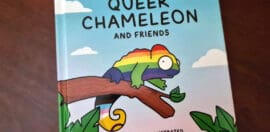Respecting the environment and listening to Indigenous wisdom

11 July 2022 at 2:11 pm
Could our past save our futures? Sandrine Charruyer and Sophie Lepowic talk to Wendy Williams about their documentary, Inferno Without Borders, and the growing need to recognise the value of Aboriginal fire and landscape management practices.
At the heart of the French/Australian documentary Inferno Without Borders is the importance of recognising Indigenous knowledge.
The film, which centres on the 2019-2020 Australian bushfires, makes the case for reintroducing traditional fire management techniques stemming from Aboriginal cultures.
The film questions whether by adopting these practices, future generations could look forward to an Australia of regenerated wildlife and healthy landscapes. It is clear for the filmmakers, the answer is yes.
In promotional material, those behind the film don’t hold back, arguing “the apocalyptic 2019-2020 Australian bush fires were a dire warning: respect the environment and listen to Indigenous wisdom, or our world will become a living hell”.
Throughout the film, experts in politics, ecology and land management stress the importance of adjusting to the new reality of extreme weather conditions and most importantly, adopting methods to reduce global warming.
As floods strike the east coast again, and many Australians come face to face with the reality of the climate crisis, the message seems particularly pertinent.
Director Sandrine Charruyer, who grew up in France but now calls Australia home, tells Pro Bono News when they were first commissioned to make the film by France Television they didn’t know what the angle of the story was going to be. They simply jumped in the car and headed to where the fires were burning.
But after spending time in the area and speaking to people on the ground, they started to hear more and more about cool burning. They saw an opportunity, among the heartbreak and disaster, to tell a story which offered a sense of hope and solution.
Cool burning, often referred to as cultural burning, is a practice where small fires are set alight to clear the underbrush. The central idea is that it uses a low-intensity “cool” fire which moves slowly and is closely monitored so only the underbrush is burnt.
The nature of the practice, which has been done for thousands of years, means that animals and insects are given enough time to escape, trees can survive, it encourages regrowth of grasses, and the fire is often self-extinguishing.
In contrast, hazard-reduction burns, which are commonly used to reduce fuel loads and threats to people and property from wildfires, remove whole areas of bush and can be much hotter than cool burns, ultimately damaging the ground.
Charruyer recalls a conversation she had with Uncle Nook (Noel Webster) that helped her to understand the consequences of current fire management techniques.
“The first rain came at this time and we shot that, but Uncle Nook said, ‘Look at the water, the way it’s going is not good’. And I said, why is it not good? It’s great. We have rain now. And he said ‘no, look at it closely’. And what I could see was the water was not being absorbed properly, because the earth was too burnt,” she says.
“It will take years before the water comes through. It’s over burnt, so the rain doesn’t help. And the floods can be explained because of that too.”
As the film explains, Australia has a fire-dependent ecosystem that needs fire to regenerate. But it needs the right type of fire.
The documentary makes a compelling argument for the benefits of cool burning.
At one stage the audience sees a view of a property west of the NSW town of Ulladulla that was spared from the bushfire. The couple who live there, Gavin and Leanne Brook, had used cool burning on their property thanks to help from the Firesticks Alliance.
“Everybody else, all of their neighbours, lost everything and they were the only green patch in there. It was amazing,” Charruyer recalls.
There has been a surge in interest from communities wanting to learn about traditional burning practices.
But there are a number of issues standing in the way. One is a lack of cultural burners, and crucially a lack of funding.
The film explains there is also a lot of bureaucracy that is holding people back.
The documentary interviews Tassin Barnard who applied for permission to use cool burning around the wildlife preserve she runs with her husband. She is left waiting for months, before finally receiving an answer after the fire season has already started. As cool burning cannot be done in bushfire season it is too late. She has to apply again.
Charruyer and co-director Sophie Lepowic are not afraid to lay blame on the former-Morrison government’s stance on the climate crisis, with the documentary also touching on the issues of white settler politics and colonial mismanagement.
The pair agree that public sentiment is changing as people are becoming more aware of the climate crisis. But they argue that politics needs to catch up, and they are concerned that the bureaucracy involved in changing the system takes time – “when we have no time to wait”.
“We interviewed a range of people, Mr and Mrs Everybody, and they all said, ‘we told the government that this was going to happen, that we have to prepare now. We have a solution. Listen to us.’ But the government takes its time because it has other priorities,” Charruyer says.
The pair, who are non-Indigenous, also acknowledge there is a reluctance in Australia more broadly to turn to Aboriginal knowledge and wisdom.
Lepowic, who moved to Australia in 2011, tells Pro Bono News she believes education is the key.
“We became aware, because we looked for answers. But as it’s explained in the documentary, people arrived here with their western science and thought they knew everything. They didn’t look for other answers on how it was being done. Now, we know that Aboriginal people do have that wisdom, and they have so much knowledge. But it should be taught in schools,” she says.
“My son is 14. When he was four he went to primary school. Once they would have Aboriginal people coming and doing a smoke ceremony, but it’s not enough.”
Their hope is to partner with universities to show the documentary to students and educate the next generation of Australians.
But they also believe it will resonate with an international audience. Footage of the roaring fires fascinated and moved citizens around the world. Charruyer and Lepowic believe their film can deliver a message that leads to behavioural change, here and abroad.
“My son watched it and at the end he just was like, ‘Oh, so that’s what needs to be done, why didn’t they tell us before?’”Lepowic says.
The pair remain hopeful that things will get better.
“I am still very hopeful and positive,” Charruyer says.
“Because whoever we interviewed, they were all in favour of this cool burning and they were angry [they weren’t able to do it].”
Lepowic adds: “We still have to hope, because if we don’t do that, and if it’s only anger, it’s not going to solve the problem.”
Find out more about Inferno Without Borders here.







